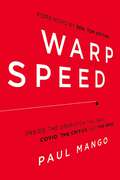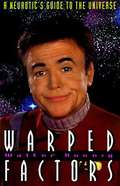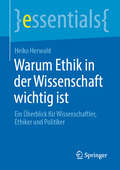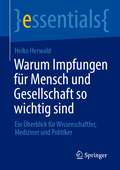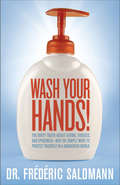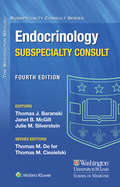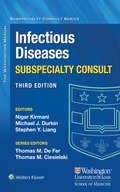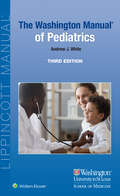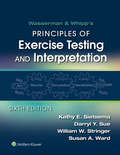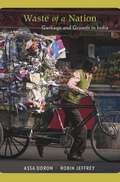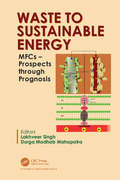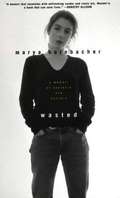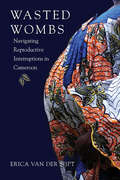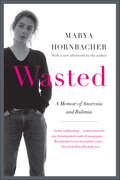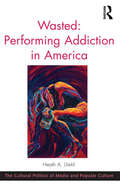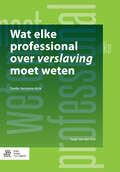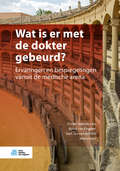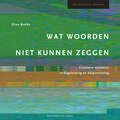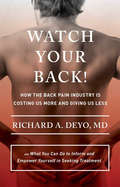- Table View
- List View
Warp Speed: Inside the Operation That Beat COVID, the Critics, and the Odds
by Tom Cotton Paul MangoA powerful story of how our nation&’s leaders overcame the odds, saving the American people from the throes of a deadly pandemic. The prior record for vaccine development and distribution was approximately 4.5 years. Operation Warp Speed got the COVID-19 vaccine to the American people in less than 10 months. Operation Warp Speed did not happen by accident. It was the result of exceptional leadership, explicit strategy, and unprecedented teamwork. Author Paul Mango, the foremost leader of Operation Warp Speed and the former deputy chief of US Health and Human Services, chronicles the challenges and real dangers of developing the vaccine. From the beginning, two lead scientists, Dr. Moncef Slaoui and Dr. Debra Birx, fought head to head on which vaccines had the greatest probability of success. Tensions grew as the Army Materiel Command and the Center for Disease Control debated on whether public health agencies or the private sector would take over vaccine distribution. Mango details the largest hurdle for the Operation Warp Speed team: though Pfizer, the first distribution company to deliver the mRNA vaccine, sought aid from the Federal Government, they refused the government&’s request to oversee safe manufacturing of the vaccine, eventually leading to a major scandal as Pfizer missed its contractual obligation to deliver 40 million doses by the end of 2020, the number of positive cases reaching a frightening peak all the while. In this harrowing, behind-the-scenes account of the most successful public-private partnership since World War II, we learn how the nation&’s biggest leaders accomplished the impossible. Through sheer will and exceptional commitment, a small group of leaders fulfilled its mission, making the United States the only country in the world which could offer a vaccine to any citizen by April 2021, scarcely 14 months after the genetic identification of the virus.
Warped Factors: A Neurotic's Guide to the Universe
by Walter Koenig"Beneath the tinsel of Hollywood," Oscar Levant once said, "is the real tinsel." Beneath that lies a cornucopia of absurd behavior and bizarre experiences that rival the most creative silver screen fiction. As a young transplant from New York in the 1950s and '60s Walter Koenig quickly came to know Hollywood as a place of energy and opportunity where life's uncertainties loomed large. Launching an acting career in this unpredictable cultural cauldron, he wound his way through various misadventures before finding he had attained a degree of success that surprised even him. This is Koenig's story--from growing up as the neurotic child of Russian immigrants in 1940s Manhattan through his rise to Star Trek fame as Pavel Chekov, Russian navigator of the U.S.S. Enterprise, and beyond. Not a typical Hollywood memoir, Warped Factors is anything but aloof. Koenig's very human narrative is full of the kind of insecurities and quirks anyone can relate to. With wry wit, striking candor, and a true gift for storytelling, Koenig takes us on a sometimes bumpy but often hilarious trip through his galaxy. Blind faith and a healthy sense of irony seem to sustain him as he relates a steady stream of anecdotes, including: *** * Pitching a story to an NBC producer who is in the midst of an out-of-body experience; * Having a loaded gun placed in his ear by a jealous manager; * Performing a controversial play that was interrupted by someone believed to be a member of the American Nazi party dressed in the uniform of a Chicken Delight delivery boy; * Getting fired from a CBS movie of the week for staring at the director; * Being mistaken for a bellhop during a public appearance in his Star Trek uniform; * Declining a Star Trek convention attendee's invitation to help sacrifice a chicken in her hotel room. Of course, this amusing memoir also takes us behind the scenes of Star Trek, with fresh perspectives not only on the cast members themselves but also on the development and evolution of the megalithic sci-fi legend. In fact, Koenig includes a number of the script ideas he himself pitched over the years, including a proposed outline for Star Trek VI (one that saw the deaths of several main crew members, including Kirk) and several for The Next Generation series. Also included are Koenig's notes to producer Harve Bennett on Star Trek IT. The Wrath of Khan, as well as his commentary on several other projects. Finally, Koenig offers candid reflections not only on the Star Trek years but on his life and career since. Most notable are his well-received stints on stage and his current role as the insidious Alfred Bester on television's Babylon S. Enjoying both critical and popular success, Koenig has once again confirmed his enduring position in science fiction's acting pantheon.
Warrior Marks
by Alice Walker Pratibha ParmarHow the film "Warrior Marks" was made, which is about female genital mutilation and the sexual blinding of women in Africa.
Warum Ethik in der Wissenschaft wichtig ist: Ein Überblick für Wissenschaftler, Ethiker und Politiker (essentials)
by Heiko HerwaldUnser heutiges Leben ist wie in keiner anderen Epoche in der Geschichte der Menschheit durch technische und wissenschaftliche Erneuerungen geprägt. Beides hat zwar in einigen Teilen der Welt zu verbesserten Lebensbedingungen geführt, aber der Fortschritt hat auch einen hohen Preis. Denn die Menschheit steht vor sehr großen Herausforderungen, wie es beispielsweise die Corona-Krise zeigt. Diese und andere Probleme werden in Zukunft kaum zu bewältigen sein, wenn nicht bald ein drastisches Umdenken stattfindet. Um eine Veränderung zugunsten einer verbesserten Zukunft herbeizuführen, wird die Wissenschaft einen wichtigen Beitrag leisten müssen. Neue wissenschaftliche Konzepte und Maßnahmen können aber nur verwirklicht werden, wenn sie Zielsetzungen für das Allgemeinwohl verfolgen. Um diese durchzusetzen, muss die Wissenschaft sich an ethische Prinzipien halten, weil nur sie garantieren, dass Forschung im Interesse des Gemeinwohls betrieben werden kann.
Warum Gespräche scheitern: Gelassen mit schwierigen Menschen umgehen
by Rainer SachseDieser Ratgeber hilft Ihnen, wenn Sie im Alltag regelmäßig schwierigen Interaktionssituationen ausgesetzt sind. Beispiel: Interaktionspartner kritisieren, werten ab, reagieren ärgerlich aus scheinbar nichtigen Anlässen, geben Anweisungen, ohne dazu berechtigt zu sein, manipulieren usw. Solche Handlungen gehen meist von Personen aus, die sogenannte Persönlichkeitsstile oder Persönlichkeitsstörungen aufweisen. Sie empfinden das als stressig, unangenehm, belastend oder ärgerlich und es ist meist schwierig, konstruktiv damit umzugehen? Dann sind Sie in bester Gesellschaft. Das Buch soll verständlich machen, warum Personen solche Handlungen ausführen, was sie damit wollen und wie Sie konstruktiv damit umgehen können. Geeignet für Partnerschaft, Familie, bei der Arbeit mit Kollegen und Chefs oder auch bei Menschen, mit denen man nur wenig (aber schwierigen) Kontakt hat. Hilfreiche Strategien aus dem Inhalt: Gelassen bleiben, entspannt bleiben – nicht aggressiv reagieren – nicht mit gleicher Strategie aufwarten – nicht defensiv reagieren – souverän bleiben. Über den Autor: Prof. Dr. Rainer Sachse macht komplexe psychologische Sachverhalte allgemein verständlich und stellt sie humorvoll und einfühlsam dar. Das ist für Laien ebenso mit Gewinn lesbar wie für Fachkolleginnen und -kollegen.
Warum Impfungen für Mensch und Gesellschaft so wichtig sind: Ein Überblick für Wissenschaftler, Mediziner und Politiker (essentials)
by Heiko HerwaldIn der Geschichte der Menschheit haben Seuchen und Plagen immer wieder eine Spur von Leid und Tod hinterlassen. Auch in der Zukunft werden wir nicht von Pandemien, die über uns hereinbrechen werden, verschont bleiben. Der Ausbruch von COVID-19 kann daher auch als der Beginn einer neuen Bedrohung, die von lebensgefährlichen Infektionskrankheiten ausgeht, angesehen werden. Ursache hierfür sind unter anderem die menschengemachte Zerstörung unseres Lebensraums, der damit verbundene Rückgang der Artenvielfalt und eine aggressive Agrarwirtschaft. Als dies hat jetzt schon zu einer Zunahme von zoonotischen Infektionskrankheiten und antibiotikaresistenten Erregern geführt. Um sich auf diese Gefahren vorzubereiten, muss die Weltgemeinschaft enger zusammenrücken und an gemeinsamen Lösungen arbeiten, bei denen nationale politische, wirtschaftliche, ethnische und religiöse Hürden überwunden werden müssen. Impfkampagnen werden hierzu einen wichtigen Beitrag leisten, da es zurzeit kaum andere Alternativen zur Bekämpfung von Pandemien gibt.
Was die Chirurgie fürs Leben lehrt: Erfolgsrezepte eines erfahrenen Operateurs
by Rüdiger HorstmannÄrzte gelten als Halbgötter in Weiß und Chirurgen sind für viele so etwas wie die Elite der Ärzteschaft. Der Chirurg hat das Image eines Machers, er fasziniert, sein Alltag erscheint vielen unheimlich spannend und spektakulär. Schließlich verabreicht er keine Pillen, nein, er schneidet in die Haut – und das ist immer eine Grenzerfahrung.Dieses Buch ermöglicht einen Blick hinter die hermetisch verschlossenen Türen der OP-Säle. Was geht dort vor sich? Welche Fähigkeiten muss der Operateur besitzen? Wie fokussiert er sich und wie bekommt er seine Emotionen in den Griff? Fragen wie diese werden in den dreizehn Kapiteln des Buches beantwortet – und das nicht in Form theoretischer Abhandlungen oder fiktiver Geschichten, sondern anhand ganz konkreter Erfahrungen des Autors, die er in seiner über 40-jährigen beruflichen Laufbahn sammeln durfte.Und es zieht Parallelen zum Leben außerhalb der Krankenhäuser, da letztlich in jedem Unternehmen und für jeden Menschen dieselben Fähigkeiten und Eigenschaften wichtig sind: sich fokussieren und Ziele setzen, handeln und Druck von außen managen, innovativ sein und das Team einbinden. Mit den konkreten Handlungsanleitungen gelingt die Umsetzung ganz einfach im Beruf oder privaten Alltag.
Was kommt bei Demenz auf uns zu?: Ein Ratgeber für Angehörige und Betreuende
by Ina RiechertEine beginnende Demenz wird oft verdrängt. Die Frage ist immer wieder: Ist das schon dement oder doch nur tüdelig? Die Menschen wollen diese Krankheit nicht wahrhaben und doch nimmt sie ihren weiteren Verlauf. Es fehlt dabei oft die Zeit und die Muße sich umfassend über Hilfsmöglichkeiten und Erleichterungen zu informieren. Dieses Buch ist ein Leitfaden für Angehörige und Betreuende und will Mut machen für einen würdevollen Umgang mit den Betroffenen. Es werden Möglichkeiten aufgezeigt, dieser Krankheit durch eine gezielte und begleitende Unterstützung im eigenen Zuhause oder einer Pflegeeinrichtung zu begegnen. Unterschiedliche Stationen werden anhand von Fallerzählungen anschaulich dargestellt und durch aktuelle medizinische und psychologische Informationen ergänzt. Praktische Tipps und Hilfsangebote für Angehörige und Betreuende runden diesen Leitfaden ab.
Was macht ein gelungenes Leben aus?: Weisheiten der Stoiker und moderne Forschung zu Glück und Emotionsregulation
by Sven BarnowIIn diesem Buch geht es darum, die Annahmen der Stoiker mit der aktuellen Emotions- und Glücksforschung zu verbinden. Das stoische Versprechen, dass mit Übung und Praxis stoischen Denkens der Mensch auch schwere Stürme des Lebens gelassen überstehen und sogar daran wachsen kann, ist ermutigend. Aber ist es auch wahr? Leser und Leserinnen, die sich für den Stoizismus interessieren und sich gleichzeitig einen gut lesbaren Überblick über die aktuelle Glücks- und Emotionsforschung verschaffen wollen, sei dieses Buch ans Herz gelegt. Aus dem Inhalt: Stoische Lebensleitlinien: Prinzip 1: Lebe fokussiert, hüte dich vor Ablenkungen. Prinzip 2: Lebe einfach. Prinzip 3: Lerne die Emotionen zu beherrschen, um glücklich zu sein. Prinzip 4: Minimiere die egozentrischen Bedürfnisse des Egos. Prinzip 5: Hinterfrage dein Verlangen nach Anerkennung. Prinzip 6: Akzeptiere, was nicht deiner Kontrolle obliegt. Prinzip 7: Übe Dich in Dankbarkeit. Über den Autor: Prof. Dr. Sven Barnow leitet den Lehrstuhl für Klinische Psychologie und Psychotherapie am Psychologischen Institut der Universität Heidelberg. Neben seinem wissenschaftlichen Engagement im Bereich der Emotionsforschung interessiert er sich für den Stoizismus, da diese Lebensphilosophie sich unter anderem mit der Frage auseinandersetzt hat: Wie Emotionen regulieren?
Wash Your Hands: Dirty Truth About Germs, Viruses and Epidemics . . . and the Simple Ways to Protect Yourself in a Dangerous World
by Frédéric SaldmannDid you know that the brown spots on apples are carcinogenic? That gardening can lead to Legionnaire's disease? That a toothbrush can pass on the hepatitis virus, or that an improperly cared-for cavity can endanger your heart? These health risks--the very real results of diminished attention to personal hygiene, especially hand-washing--crop up in every part of daily life, from working and eating out to staying in and spending time around the house. Some threaten us not only on an individual level, but a global one as well. From allergies to the possibility of an avian flu pandemic, Dr. Frédéric Saldmann examines in detail the many dangers that may lie in wait and sets out simple measures for keeping them at a safe distance--his number one mandate being washing your hands as often and as thoroughly as possible.A nationally recognized expert in his native France, Dr. Saldmann introduces readers to new studies that show the incredible range of germs transmitted by our hands in the most commonplace interactions. This book not only concerns the bacterial dangers of bad hygiene, but presents a panoramic survey of health-endangering practices, rumors, and fears amok on the contemporary scene, offering a compendium of answers, advice, and condensed research in a single, handy reference. Other features include sections on psychological health and beating bad habits and on epidemics and worldwide health scares.Dr. Saldmann combines scientific study and practical advice in this veritable handbook for the personal hygiene our times demand. Rich in research, anecdotes, and unexpected humor, Wash Your Hands!, is a no-nonsense manual that is imperative to our daily lives.
Washington Manual Endocrinology Subspecialty Consult: The Washington Manual Of Endocrinology Subspecialty Consult Series (The\washington Manual Ser. #No. 174)
by Janet McGillDesigned for residents cycling through an internal medicine subspecialty clinical rotation or for fellows who need to better understand the fundamentals, this fourth edition offers you updated guidance on the physical exam, diagnosis, management, and treatment follow-up for various endocrine disorders. Written in a step-by-step, to-the-point style, the book covers diabetes mellitus, multi-system disorders, as well as conditions of the hypothalamus, pituitary gland, thyroid, and more.
Washington Manual Infectious Disease Subspecialty Consult
by Nigar Kirmani Michael Durkin Stephen LiangConcise, portable, and user-friendly, The Washington Manual™ Infectious Diseases Subspecialty Consult, Third Edition, provides essential information needed to evaluate patients on a subspecialty consult service. This edition offers state-of-the-art content on the diagnosis, investigation, and treatment of a wide variety of infectious diseases, including coverage of new and emerging pathogens, rapid molecular diagnostics for infectious diseases, and new therapeutic and preventive strategies. Ideal for trainees and practicing physicians who need quick access to current scientific and clinical information in this rapidly changing area, the manual is also useful as a first-line resource for internists and other primary care providers.
Washington Manual of Pediatrics
by Andrew J. WhiteFocusing on the essential information you need to know when caring for children in the hospital, ICU, emergency department, or subspecialty outpatient clinic, Dr. Andrew J. White’s Washington Manual® of Pediatrics, 3rd Edition, provides concise, high-yield content that reflects recent advances in the field. This practical volume in the Lippincott Manual series presents brief, logical approaches to the diagnosis and treatment of common inpatient pediatric problems, as well as evidence-based references where they are available. It addresses common challenges faced by residents, interns, pediatric hospitalists, and medical students, plus offers practical solutions and expert guidance – all in one portable and user-friendly resource.
Wasserman & Whipp's: Principles of Exercise Testing and Interpretation: Including Pathophysiology and Clinical Applications
by Susan Ward Kathy E Sietsema William W Stringer Darryl Y SueThoroughly revised and updated for today’s clinicians, Wasserman & Whipp’s Principles of Exercise Testing and Interpretation, Sixth Edition, provides a comprehensive, practical overview of cardiopulmonary exercise testing (CPET) ideally suited for pulmonologists, cardiologists, anesthesiologists, and others with an interest in clinical exercise testing. Written by authors who are uniquely positioned to convey relevant aspects of research and apply them to clinical contexts, this volume offers in-depth coverage of essential information for conducting CPET, or for utilizing data from this discipline in clinical practice or research.
Waste of a Nation: Garbage and Growth in India
by Assa DoronIn India, you can still find the kabaadiwala, the rag-and-bone man. He wanders from house to house buying old newspapers, broken utensils, plastic bottles—anything for which he can get a little cash. This custom persists and recreates itself alongside the new economies and ecologies of consumer capitalism. Waste of a Nation offers an anthropological and historical account of India’s complex relationship with garbage. Countries around the world struggle to achieve sustainable futures. Assa Doron and Robin Jeffrey argue that in India the removal of waste and efforts to reuse it also lay waste to the lives of human beings. At the bottom of the pyramid, people who work with waste are injured and stigmatized as they deal with sewage, toxic chemicals, and rotting garbage. Terrifying events, such as atmospheric pollution and childhood stunting, that touch even the wealthy and powerful may lead to substantial changes in practices and attitudes toward sanitation. And innovative technology along with more effective local government may bring about limited improvements. But if a clean new India is to emerge as a model for other parts of the world, a “binding morality” that reaches beyond the current environmental crisis will be required. Empathy for marginalized underclasses—Dalits, poor Muslims, landless migrants—who live, almost invisibly, amid waste produced predominantly for the comfort of the better-off will be the critical element in India’s relationship with waste. Solutions will arise at the intersection of the traditional and the cutting edge, policy and practice, science and spirituality.
Waste to Sustainable Energy: MFCs – Prospects through Prognosis
by Lakhveer Singh Durga Madhab MahapatraWith no emissions and water as a byproduct, the globe could imagine a sustainable and resilient human kind that obliterates any possible chances of future climate change. With increased globalization, there has been an unprecedented escalation in production processes thus generating valued products and byproducts. A significant quantum of the waste materials generated can be transformed into fuels with the help of MFCs. MFC’s utilities would bring about a paradigm shift built on the principles of sustainability, encompassing closed loop biorefinery approach. A MFC’s bio-refinery ensures complete allocation of products and byproducts in various processes yielding zero waste. Such efforts would not only help in managing waste but also contribute to generation of renewable fuel and valued products that fosters sustainable development. To cater to the needs of the present challenges in waste management, bioenergy and bio product recovery and commercial sustainability, this book on MFCs will emphasize and throw light on various mechanisms, routes and reaction engineering approaches for complete transformation of waste to wealth.
Wasted
by Marya HornbacherWhy would a talented young woman enter into a torrid affair with hunger, drugs, sex, and death? Through five lengthy hospital stays, endless therapy, and the loss of family, friends, jobs, and all sense of what it means to be "normal," Marya Hornbacher lovingly embraced her anorexia and bulimia -- until a particularly horrifying bout with the disease in college put the romance of wasting away to rest forever. A vivid, honest, and emotionally wrenching memoir, Wasted is the story of one woman's travels to reality's darker side -- and her decision to find her way back on her own terms.
Wasted Wombs: Navigating Reproductive Interruptions in Cameroon
by Erica van der SijptCentral to this book are Gbigbil women's experiences with different "reproductive interruptions": miscarriages, stillbirths, child deaths, induced abortions, and infertility. Rather than consider these events as inherently dissimilar as women do in Western countries, the Gbigbil women of eastern Cameroon see them all as instances of "wasted wombs" that leave their reproductive trajectories hanging in the balance. The women must navigate this uncertainty while negotiating their social positions, aspirations for the future, and the current workings of their bodies.Providing an intimate look into these processes, Wasted Wombs shows how Gbigbil women constantly shift their interpretations of when a pregnancy starts, what it contains, and what is lost in case of a reproductive interruption, in contrast to Western conceptions of fertility and loss. Depending on the context and on their life aspirations—be it marriage and motherhood, or an educational trajectory and employment, or profitable sexual affairs with so-called "big fish"—women negotiate and manipulate the meanings and effects of reproductive interruptions. Paradoxically, they often do so while portraying themselves as powerless. Wasted Wombs carefully analyzes such tactics in relation to the various social predicaments that emerge around reproductive interruptions, as well as the capricious workings of women's physical bodies.
Wasted Wombs: Navigating Reproductive Interruptions in Cameroon
by Erica van der SijptCentral to this book are Gbigbil women's experiences with different "reproductive interruptions": miscarriages, stillbirths, child deaths, induced abortions, and infertility. Rather than consider these events as inherently dissimilar as women do in Western countries, the Gbigbil women of eastern Cameroon see them all as instances of "wasted wombs" that leave their reproductive trajectories hanging in the balance. The women must navigate this uncertainty while negotiating their social positions, aspirations for the future, and the current workings of their bodies. Providing an intimate look into these processes, Wasted Wombs shows how Gbigbil women constantly shift their interpretations of when a pregnancy starts, what it contains, and what is lost in case of a reproductive interruption, in contrast to Western conceptions of fertility and loss. Depending on the context and on their life aspirations--be it marriage and motherhood, or an educational trajectory and employment, or profitable sexual affairs with so-called "big fish"--women negotiate and manipulate the meanings and effects of reproductive interruptions. Paradoxically, they often do so while portraying themselves as powerless. Wasted Wombs carefully analyzes such tactics in relation to the various social predicaments that emerge around reproductive interruptions, as well as the capricious workings of women's physical bodies.
Wasted: A Memoir of Anorexia and Bulimia
by Marya HornbacherA classic of psychology and eating disorders, now reissued with an important and perhaps controversial new afterword by the author, Wasted is New York Times bestselling author Marya Hornbacher's highly acclaimed memoir that chronicles her battle with anorexia and bulimia.Vivid, honest, and emotionally wrenching, Wasted is the story of how Marya Hornbacher willingly embraced hunger, drugs, sex, and death—until a particularly horrifying bout with anorexia and bulimia in college forever ended the romance of wasting away.In this updated edition, Hornbacher, an authority in the field of eating disorders, argues that recovery is not only possible, it is necessary. But the journey is not easy or guaranteed. With a new ending to her story that adds a contemporary edge, Wasted continues to be timely and relevant.
Wasted: Performing Addiction In America (The Cultural Politics of Media and Popular Culture)
by Heath A. DiehlDeparting from the scholarly treatment of addiction as a form of rhetoric or discursive formation, Wasted: Performing Addiction in America focuses on the material, lived experience of addiction and the ways in which it is shaped by a ’metaphor of waste’, from the manner in which people describe the addict, the experience of inebriation or his or her systematic exclusion from various aspects of American culture. With analyses of scientific and popular cultural texts such as novels and films, scholarly or medical models of addiction, reality television, TV drama, public health and anti-addiction campaigns, and the lives of celebrities who struggled with addiction, this book recovers the sense of materiality in which the experience of substance abuse is anchored, revealing addiction to be a set of socio-cultural practices, historically-contingent events and behaviours. Exploring the ways in which addiction as an identity construct, as a social problem, and as a lived experience is always and already circumscribed by the metaphor of waste, Wasted: Performing Addiction in America advances the idea that addiction constitutes a site of social control beyond the individual, through which American citizenship is regulated and the ’nation’ itself is imagined, demarcated, and contained. As such, it will appeal to scholars of popular culture, cultural and media studies, performance studies, sociology and American culture.
Wat elke professional over verslaving moet weten: Canon Verslaving
by Jaap van der StelDit boek is onmisbaar voor alle personen die zich, professioneel of in lerende of opleidende rol, in of rond de verslavingszorg bewegen. Het is een unieke publicatie op gebied van kennisoverdracht, bekwaamheidsontwikkeling, onderwijs en opleiding. Dit gedegen overzicht van de belangrijkste onderdelen van verslaving en verslavingszorg kan beschouwd worden als canon en tegelijkertijd als 'body of knowledge' van dit vakgebied. De focus is in dit boek gericht op gebruik, misbruik en afhankelijkheid van psychoactieve stoffen, met name op alcohol, heroïne, cocaïne en cannabis. Hoewel de verslavingszorg in Nederland al meer dan een eeuw bestaat, is er niet eerder een handleiding verschenen dat specifiek voor het hoger onderwijs (m. n. HBO) is geschreven. Aan dit boek liggen geselecteerde teksten - tientallen artikelen, handboeken, richtlijnen en literatuurstudies - ten grondslag die qua actualiteit, leesbaarheid en empirische onderbouwing voldoen aan de hoge normen die de Raad voor Bekwaamheidsontwikkeling stelt. Deze Raad heeft de opdracht om 'moderne verslavingskunde' te bevorderen in opleidingen, trainingen en na- en bijscholing van professionals in de gezondheidszorg. De handleiding kent 4 hoofdstukken: Middelen, gebruik en gebruikerMisbruik en verslavingMaatschappelijke gevolgen en overheidsbeleidBehandeling en begeleiding bij verslavingOm ruimte te besparen wordt in de tekst verwezen naar websites wanneer daar uitmuntende en actuele overzichten en praktische informatie over hulpverlening staan.
Wat is er met de dokter gebeurd?: Ervaringen en bespiegelingen vanuit de medische arena
by Marcel Levi Baziel Van Engelen Gert Jan van der WiltDit boek laat zien hoe het beroep van arts razendsnel is veranderd en tegen welke obstakels de moderne dokter aanloopt. De ‘dokter’s journey’ in de afgelopen generatie lijkt een achtbaan met als voorlopig eindpunt de huidige medische arena. Daar vindt strijd plaats en niet alleen tegen de ziekte. Bij patiënten binden verwachtingen, idealen, hoop en geloof in technologische mogelijkheden de strijd aan met acceptatie en verdriet. Ziekte en beperkingen horen steeds minder thuis in een maakbare wereld vol vooruitstrevende hoogstandjes. Bij dokters strijdt liefde voor het vak met de dagelijkse invulling in het werk, met als gevolg een stijging van uitval door burn out. Economie en geneeskunde hebben een beknellend pact gesloten: zorg is ook ‘productie’, waarin zorgvuldigheid dreigt te worden vervangen door protocollen en beslisbomen die de maat aangeven en de toon bepalen. Maar waar draait het nu werkelijk om? Gaat het over de patiënt, over de ziekte, of staat het in stand houden van het systeem centraal? Wat is er gebeurd, wat vinden we ervan en is dit wat we willen? In Wat is er met de dokter gebeurd? geven ruim dertig auteurs vanuit verschillende invalshoeken hun ervaringen met en bespiegelingen op de zorg. Het is een uitnodiging met elkaar in gesprek te gaan over deze wezenlijke vragen.
Wat woorden niet kunnen zeggen: Creatieve middelen in begeleiding en hulpverlening
by D. de Bie E. Budde.
Watch Your Back!: How the Back Pain Industry Is Costing Us More and Giving Us Less—and What You Can Do to Inform and Empower Yourself in Seeking Treatment
by Richard A. DeyoOver the past twenty years, treatment of back pain has become ever more expensive and intensive. Use of MRI scans, narcotic painkillers, injections, and invasive spine surgery have all grown by several hundred percent. In some areas of medicine, newer treatments have improved quality and duration of life, but as back pain is treated more aggressively, annual surveys of people with back pain report steadily worse impairments. In Watch Your Back!, Richard A. Deyo, MD, proposes an approach to managing back pain, which most adults in the United States experience at some point, that empowers the individual and leads more directly to effective care. Though it may seem counterintuitive, fewer medical interventions may produce better results. Expecting a probe, a pill, or a procedure to cure back pain is usually unrealistic, yet entire industries promote the notion that someone else will "fix" you. Watch Your Back! exposes these flaws in the current approach to back pain, along with the profit motives and conflicts of interest behind many of them. The book dramatizes the problems with stories of prominent individuals who encountered high-tech pitfalls, then found low-tech solutions suited to their lifestyles and the nature of their back pain. Watch Your Back! will be useful not only for people with back pain but also for doctors and policy makers. Our health care system has a growing interest in reducing waste, overuse, and unnecessary care. There's a consensus that health care is too expensive and that we get too little for the money. Back pain exemplifies a problem for which we can simultaneously improve quality of care and reduce costs.
